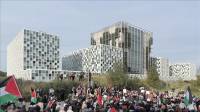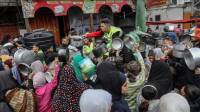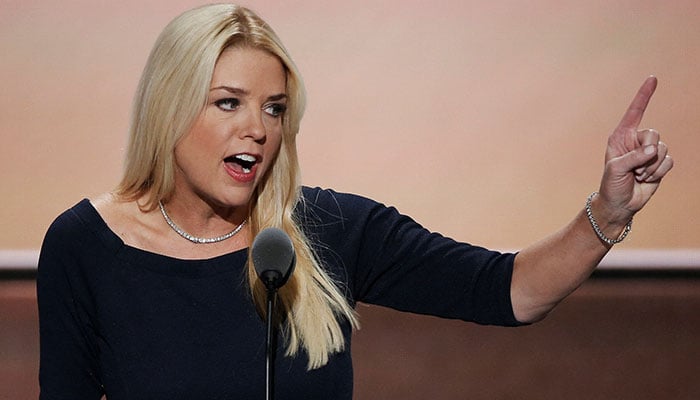

Netanyahu says ready for any scenario amid escalating regional tensions. Funeral of Hamas chief Ismail Haniyeh held in Tehran. Israel’s national security council warns citizens to exercise caution while travelling abroad.
DUBAI - Top Iranian officials will meet the representatives of Iran’s regional allies from Lebanon, Iraq and Yemen on Thursday to discuss potential retaliation against Israel after the killing of the Hamas leader in Tehran, said sources.
The region faces a risk of widened conflict between Israel, Iran and its proxies after Ismail Haniyeh’s assassination in Tehran on Wednesday and the killing of Hezbollah’s senior commander on Tuesday in an Israeli strike on the outskirts of the Lebanese capital Beirut.
Representatives of Iran’s Palestinian allies Hamas and the Islamic Jihad, as well as Yemen’s Tehran-backed Houthi movement, Lebanon’s Hezbollah and Iraqi resistance groups will attend the meeting in Tehran, said the sources, who declined to be named due to the sensitivity of the issue.
“Iran and the resistance members will conduct a thorough assessment after the meeting in Tehran to find the best and most effective way to retaliate against the Zionist regime (Israel),” said a senior Iranian official, with direct knowledge of the meeting.
Another Iranian official said Supreme leader Ayatollah Ali Khamenei and senior members of Iran’s elite Revolutionary Guards will attend.
“How Iran and the resistance front will respond is currently being reviewed ... This will certainly happen and the Zionist regime (Israel) will undoubtedly regret it,” General Mohammad Baqeri, Iran’s armed forces chief of staff, told state TV on Thursday.
Prime Minister Benjamin Netanyahu said on Thursday that Israel was on a high state of alert amid growing expectations that Iran or its allies will retaliate for the killing of senior leaders of Hezbollah and Hamas this week.
“Israel is very prepared for any scenario - both defensively and offensively,” he said, according to remarks released by his office following a visit to the Home Front Command. “We will exact a very heavy price for any act of aggression against us from any arena.”
Meanwhile, Israel’s national security council warned Israelis to exercise extra caution when travelling abroad and said Iran or its allies Hamas and Hezbollah could target Israeli or Jewish institutions outside the country.
The warning, in a statement issued through the prime minister’s office, came amid growing fears in Israel of a attack by its enemies in retaliation for the assassination of senior leaders from Hezbollah and Hamas this week.
Iran and Hamas have accused Israel of carrying out the strike that killed Haniyeh hours after he attended the inauguration of Iran’s new president in Tehran on Wednesday.
But Israeli officials have not claimed responsibility for the attack that drew threats of revenge on Israel and fuelled further concern that the Israel-Hamas conflict in Gaza was turning into an all-out war in the Middle East.
Israeli air force chief Tomer Bar, speaking at a military graduation ceremony in Israel late on Wednesday, warned Israel will act against anyone planning to harm its citizens.
“We are also strongly prepared in defence. Hundreds of aerial defence soldiers, along with air control personnel, are stationed across the country with the best systems, ready to carry out their mission,” said Bar.
Haniyeh and the leader of the Islamic Jihad, Ziad al-Nakhala, as well as senior representatives of Yemen’s Tehran-backed Houthi movement and Lebanon’s Hezbollah, attended the inauguration ceremony for Iran’s new president in Tehran on Tuesday.
Hezbollah deputy leader Naim Qassim and lawmaker Hassan Fadlallah were in Iran for the inauguration and have remained there for the funeral and meeting, sources familiar with Hezbollah’s thinking said.
“Iran’s response to the assassination of Martyr Haniyeh will be stronger than before,” former senior Revolutionary Guards Commander Esmail Kosari told state TV.
Hamas’ armed wing has said in a statement Haniyeh’s killing would “take the battle to new dimensions and have major repercussions”. Vowing to retaliate, Iran said the U.S. bore responsibility because of its support for Israel.
“Iran asked key commanders of the Iraqi resistance groups to travel to Tehran on Wednesday to attend an urgent meeting to discuss retaliation against recent Israeli strikes, including in Lebanon and Iran and the U.S. strike in Iraq,” said an Iraqi militia local commander.
Another militia source said the resistance group commanders left to attend Haniyeh’s funeral and also to attend a “top urgent meeting” to decide the following steps to retaliate against Israel and the United States.
Iranians turned out to mourn Haniyeh on Thursday, a day after he was assassinated.
“All fronts of the resistance will take revenge for Haniyeh’s blood,” Ali Akbar Ahmadian, the secretary of Iran’s Supreme National Security Council, told Iran’s semi-official Mehr news agency.
Iran’s Supreme Leader Ayatollah Ali Khamenei led funeral prayers at a memorial event for Hamas leader Ismail Haniyeh in Tehran.
In the capital’s city centre, thousands of mourners with posters of Haniyeh and Palestinian flags gathered on Thursday at Tehran University.
Following the prayers, massive crowds accompanied the body of Haniyeh and his bodyguard also killed in the strike on Wednesday, in a 5km (3-mile) funeral procession through Tehran towards Azadi (Freedom) Square.
Haniyeh’s body will then be flown to the Qatari capital, Doha, for burial.
The ceremony opened with an address from Iran’s parliament speaker Mohammad Bagher Ghalibaf. “Martyr Ismail Haniyeh was the voice of the Palestinian people all over the world,” he said. “He was not only a leader. He was the wise man.”
Ghalibaf added that Haniyeh’s assassination in Tehran would not go unanswered.
“Our reply will be there. At the right time and the right place. It is difficult for us to have our guest being targeted and assassinated on our soil,” he said.










